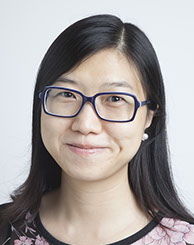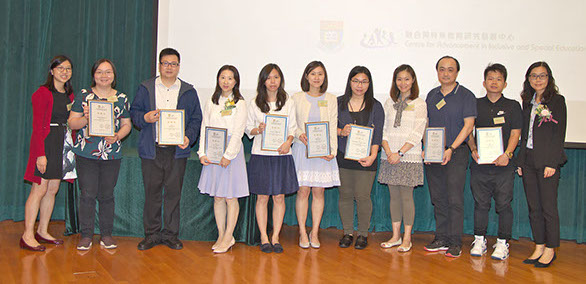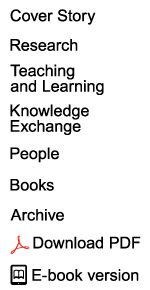
Teaching resource packages, designed by Dr Yeung’s team, were distributed to local primary schools.
Materials for teachers include differentiated worksheets that look the same to the students (for example, they are the same length), but in fact are divided into low, medium and high ability. Only the teacher knows which category each worksheet is from, thereby guarding against students feeling discouraged if they are struggling at lower levels of ability.
Feedback from teachers has been very encouraging. “They said the model enhanced learning and teaching effectiveness of writing instruction and had armed them with better tools for writing instruction, leaving them feeling more capable of dealing with student diversity in ability levels,” said Dr Yeung.
Since the publication of the report, Dr Yeung and fellow team members Miss Tsang Po-yin, Miss Chan Yan-lee and Miss Peggie Chan have held several dissemination seminars and distributed a DVD of their work to local primary schools.
Next

A series of dissemination seminars were attended by hundreds of teachers, all coming to learn more about the tiered intervention model so as to enhance learning and teaching effectiveness of writing instruction.
Making the Pen Mightier
Researchers in the Faculty of Education have come up with recommendation to help children experiencing difficulty with Chinese writing. Their work received the Faculty Knowledge Exchange Award 2017.
The team’s aim was to undertake a comprehensive study to develop and implement a tiered intervention model on writing instructions to support struggling Chinese-language writers in the upper primary grades. The resulting report, named Supporting Struggling Writers: From Theory to Practice, was cited by the awards board for its good engagement with schools and key publications and also received high praise from the teachers involved.
Dr Patcy Yeung Pui-sze, Associate Professor in the Faculty of Education, said: “Relatively, more work is done on solving reading problems than on writing problems. While a good deal of research has been done on the subject, in Hong Kong explicit efforts to turn the resulting theory into practice have been rare. Teachers told us there were few resources available for helping struggling writers. I hope our work is a start.”
There were three critical elements to the intervention study – a core writing curriculum based on scientific research findings; continuous progress monitoring to evaluate effectiveness; and professional development for teachers.
The Tiered Intervention Model (TIM) element of the project is in line with the 3-Tier Support Model currently advocated by the Education Bureau for supporting education needs. The ‘tiered’ part of the name refers to different levels of support. Tier 1 is quality teaching received by all students. Tier 2, which is based on the Tier 1 curriculum, gives more support for those not responding well to Tier 1 alone, while Tier 3 is for those who need more concentrated help.
“The tiered system also includes three other key elements,” said Dr Yeung, “professional development for teachers, progress monitoring and early identification. To develop our model we used literature for both English and Chinese curricula, and worked on phases – planning, translation and review. It is not common to have the kind of structured writing we introduced.

Materials are designed to arm students with better tools for writing instruction. A graphic organiser is used to facilitate students’ organisation of ideas in writing, such as the above train with compartments for organising the ideas of each paragraph.
“For Tier 2 we made use of findings among English and Chinese writers and included writing strategies that involve explicitly teaching students to plan, revise, brainstorm and edit, to summarise through writing and to collaborate with students in small groups to provide feedback.”
The project’s scope supported eight local schools from different districts, backgrounds and demographics so as to get more diverse feedback. The team made 110 service visits to the schools and provided on-site support including teacher training, monthly collaboration planning, class observation and monitoring of students’ progress.

![]() Working together with teachers was a great learning experience. It gave us insight into what is actually going on at classroom level and the practical problems teachers face in dealing with students of similar age but different writing ability.
Working together with teachers was a great learning experience. It gave us insight into what is actually going on at classroom level and the practical problems teachers face in dealing with students of similar age but different writing ability. ![]()
Dr Patcy Yeung Pui-sze
“Working together with teachers was a great learning experience,” said Dr Yeung. “It gave us insight into what is actually going on at classroom level and the practical problems teachers face in dealing with students of similar age but different writing ability. It was a two-way, professional exchange – they gave us feedback on what worked and what didn’t and we revised the model according to that feedback.”
From the school administrators’ point of view, the project was also a success. They liked the model because it employs a whole school approach to integrated education. Dr Yeung and her team now hope the project will be a catalyst and anchor point for future teacher development programmes.

Dr Patcy Yeung (first from left), Dr Elaine Chan (first from right), Co-Investigator of the ‘A Cognitive-linguistic Approach to Tiered Writing Intervention for Students with Diverse Learning Needs in Senior Primary Schools’ project, and school representatives at a seminar.
An element of fun
The programme includes exercises designed to be enjoyable for students. To help with sentence construction, they employed a variety of graphic organisers, such as a train with compartments for organising the ideas of each paragraph. “It’s great to use images that children find fun and that they’re familiar with,” said Dr Yeung. “We also have an exercise on review and editing with a hot spring illustration for which the students have to go through three steps starting with adjectives, then conjunctions and finally rhetoric.”
Narrative writing was made more engaging by inviting the students to role play. “For example, in one exercise they are assigned the role of a detective who has to describe a character or event to others.” Dr Yeung said: “This requires the students to be observant and to think carefully about the description, but also enables them to have fun as there is a sense of excitement.”


